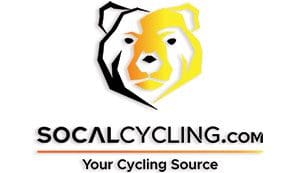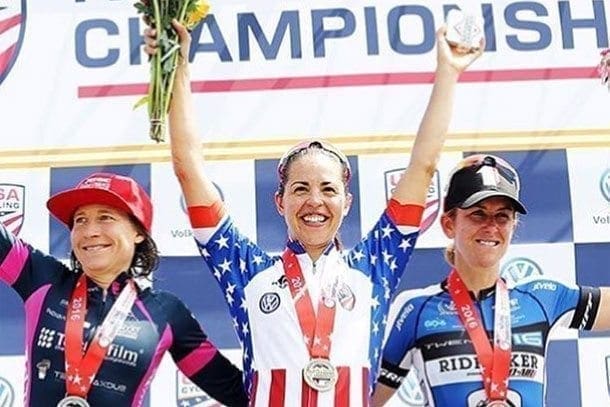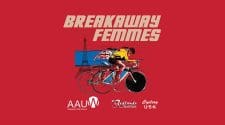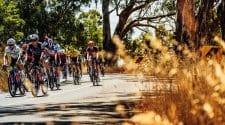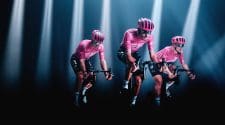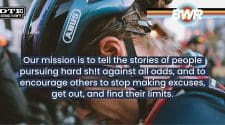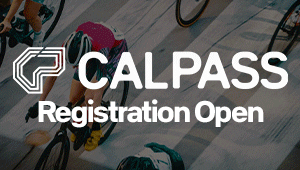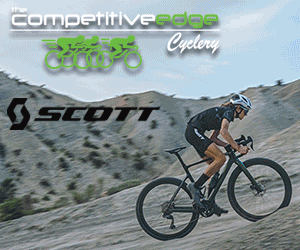Small Discusses working with the First-Year EF Education-Cannondale Team
Carmen Small is coming home.
That’s how she describes joining EF Education-Cannondale as the team’s lead directeur sportif as the team prepares for its inaugural season.
“I think I’ve found a good home,” Carmen says. “It’s an American team and I’m an American. Even though the team is European-based and we have a strong, international roster, this is super nice for me because I’ve only ever been on foreign teams. It’s really nice to think about going to US nationals. I’ve never gotten to do nationals as a director, so I’m super excited about that.”
There are a lot of things the two-time American time trial national champion is looking forward to in her first season with EF Education-Cannondale. For starters, the chance to work with general manager Esra Tromp once again.
“Working with Esra, I’ve only had positive experiences,” Carmen says. “I believe in her. She’s an incredible manager. She really knows how to bring out the best in people and how to foster the goodness in a team. Getting to work with Esra was number one.”
Carmen loved the idea of joining a team in its first year. To get to build a team and its culture from the ground up is something she has done before.
“When Esra approached me about this team, it was super interesting because it’s a first year program. I had experience with Team Virtu to build that team up so I’m not new to the game of new teams but this was nice because while of course EF Education-Cannondale has the infrastructure set up from the men’s side, it’s a blank slate. That gives you the opportunity to build and create something new and see what you can develop out of it. That was interesting to me.”
Between her years both as a rider and as a DS, Carmen has been in professional cycling for nearly two decades. In that time, she’s seen and experienced a wide range of approaches to cycling. Some have worked better than others but she was drawn in by EF Pro Cycling’s attitude toward the sport.
“I love the philosophy of the team,” she says. “The playfulness of it. They’re fun, but also serious. They’re very professional but at the same time they can have a laugh and create something that’s a little bit different. You notice this from the outside. It’s not ‘we have to be serious and not smile and not laugh in order to win races.’ So let’s laugh a bit, enjoy what we’re doing, and then success will come.”
While Carmen makes it sound easy, she knows that a lot of groundwork has to be in place before riders starting clicking, having fun, and earning wins.
“One thing I’ve learned as a fundamental is that you have to have each other’s backs. That’s not just riders, that’s also the staff. You want to create an environment that’s helpful. Maybe on paper it’s not your job to go do a certain task but you want to help your teammate and so you just do it. I think Esra and I see eye to eye on that. We both want to build an environment where we’re all helping each other to be successful,” Carmen says.
A major component in finding team success is simple communication.
“Having a good relationship with the riders, being able to communicate to them what my expectation is, I think is a really big deal. That means having a lot of pre race talks, and then in the race, I’m their motivator. I try to get the best out of them as riders.”
If it sounds like Carmen knows what she’s talking about, it’s because she does. Before her career as a DS, she raced professionally. And before that, she was a math teacher in Colorado.
“Being a DS is, in a lot of ways, very similar to being a teacher. You have to be organized. You have a lesson plan, a race plan. But it’s also about keeping riders accountable. Are you doing your homework? That’s a big part of cycling and women’s cycling especially is growing and growing and growing. You see more and more that we need to keep changing and keep improving the small things to improve the overall. Because it’s definitely getting faster and faster every year and the sport is becoming more and more professional. And as the salaries increase, the expectations also need to increase. What do we expect the riders to do and perform? And that in part comes down to what are you doing at home? Are you doing your homework?”
Carmen will have done her own homework ahead of our first race in 2024. And on that day when she gets in the team car to follow her riders, you can count on her to be prepared – and excited.
“I really love my job. I really love it,” she says. “I love working with the riders. They give me a lot of motivation. They give me a lot of energy. I love helping them prepare mentally and I love motivating them. The main thing I feel when I’m at work is excitement. I always got nervous as a rider and now I’m not nervous. The riders have to do the hard work while I get to stay in the car and talk on the radio. If we’re coming into the finale of a race and I know we can win, I’m still not nervous but I am prepared. I’m bracing myself and I’m ready for the excitement. That feeling doesn’t change whether it’s a camp or a race. It’s the same feeling for me throughout the season. I get that same motivation every time. Whether it’s a development race or the Tour de France, I do my job exactly the same and I love it exactly the same.”
